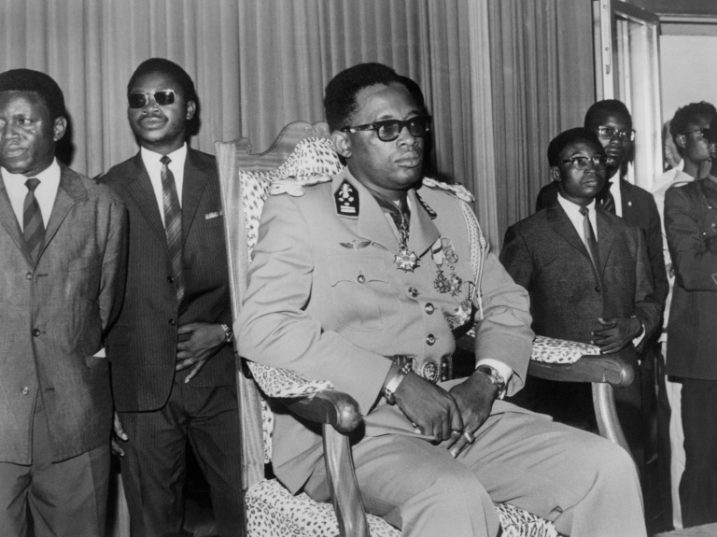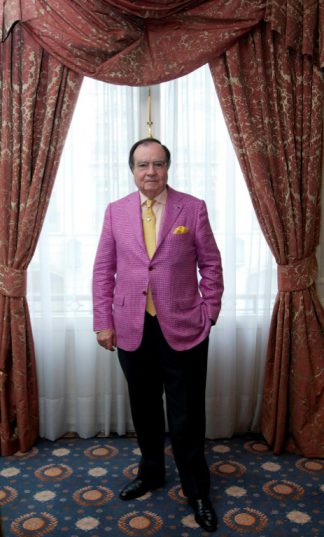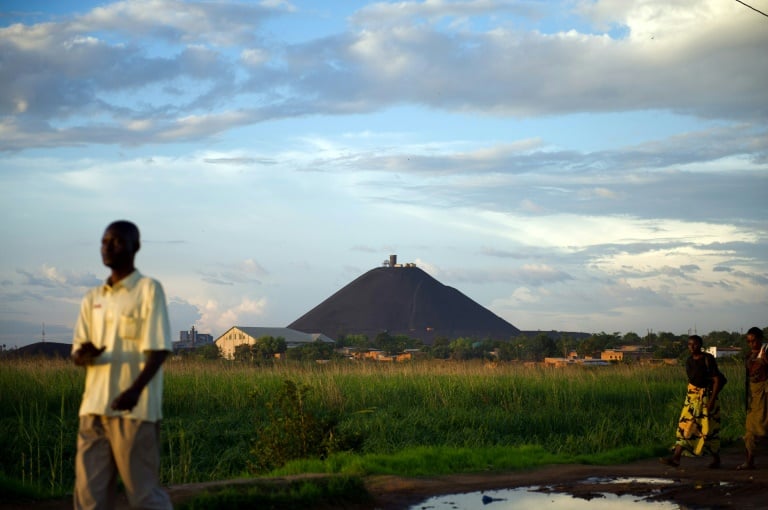Rebels have wanted to kill him, NGOs accuse him of exploitation and Chinese newcomers have rattled his Congo mining empire, but George Forrest, one of Africa's biggest businessmen, remains unbowed.
The head of the Forrest Group, which is worth an estimated $800 million (650 million euros) and was ranked second in sub-Saharan Africa by Forbes in 2016, ascribes his durability to one crucial fact.
“We’ve come through many events and a lot of crises because we don’t get mixed up in politics,” the 78-year-old entrepreneur told AFP at his office in Lubumbashi, Democratic Republic of Congo’s mining hub and its second-biggest city.
It was in this city that Forrest was born in 1940 when the country was known as Belgian Congo. He was born to a father from New Zealand, who served as honorary consul for France at the time and who set up the firm which would later become the Forrest Group.
Initially a transport company, it moved into mining, energy, banking, food processing and eventually cement manufacture.
Over the years, Forrest’s life has been intertwined with the history of this vast conflict-torn central African nation.
And although he took Belgian nationality in 1995, many Congolese see him as one of their own.
– Before a firing squad –
Just five years after Congo achieved its independence in 1960, General Joseph-Desire Mobutu seized power in a coup, renaming the country Zaire.
He installed a regime which became notorious for its widespread graft and which let the national infrastructure fall into ruin.
In 1974, Mobutu nationalised the economy and the Forrest family, which had been active in the southern Katanga region since 1922, lost everything.

In 1965, General Joseph-Desire Mobutu seized power in a coup, renaming the country Zaire
“There was no compensation,” Forrest recalls. “Soon afterwards, my father died. It was the shock.”
But Mobutu’s nationalisation programme quickly led to bankruptcy, forcing him to turn to foreign investors, with Forrest taking charge of the family’s affairs in Kolwezi, the second biggest town in the region.
In 1978, Kolwezi was invaded by rebels who massacred Congolese citizens and white residents.
“I was targeted. They said I was a friend of France and of Mobutu. I was put up against the wall to be executed. It was my workers who saved me,” he told AFP.
Mobutu quickly turned to France which sent paratroopers to free Kolwezi.
– From Mobutu to Kabila –
In the 1980s and 1990s, Forrest diversified his company’s portfolio, moving into cement and also mining as the lucrative mobile phone market began to take off.
But by 1997, the country’s history took another dramatic turn with Mobutu toppled by rebels led by Laurent Kabila, who renamed the country the Democratic Republic of Congo.

In the 1980s and 1990s, George Forrest diversified his company’s portfolio, moving into cement and also mining as the lucrative mobile phone market began to take off
Shortly before Kabila staged his final, ultimately victorious assault on Kinshasa, he passed through Lubumbashi where he encountered the entrepreneur, whose name he apparently knew.
“Are you Forrest?” he is said to have asked on meeting him.
Once in power, Kabila did not ruin Forrest as Mobutu had done with his father — he merely requisitioned his fleet of vehicles.
And two years later, Kabila even appointed him head of the powerful Gecamines state mining company, Congo’s jewel in the crown which exploits the country’s mineral riches, filling the state coffers.
“I reached a deal with Kabila,” the businessman said.
“Every month, Gecamines would officially transfer $4 million to the Central Bank.”
After Kabila was assassinated in 2001, his son Joseph Kabila took over and Forrest resigned from Gecamines and returned to his own business interests.
With the turn of the century, various NGOs began accusing Forrest of looting minerals and reports appeared in the press about alleged arms trafficking, charges he dismisses.
“I have always been in the clear. NGOs, it’s like a question of business — if you don’t fund them, they attack you,” says Forrest, who at the time described himself as the country’s “largest investor and biggest private employer”.
– A bank and some cows –
In 2007, China agreed to lend the central African country billions of dollars to develop infrastructure and mining, and in exchange Kinshasa signed over rights to its extensive natural resources, including millions of tonnes of copper and cobalt.
The deal meant Forrest had to hand over land containing copper and cobalt deposits.
“The Chinese make some very attractive proposals for the country, but how many billions is this costing in raw materials? Proportionately, it’s unfair,” he says.

Rich in mineral resources such as cobalt and copper, DRC has the potential to be one of the wealthiest countries in Africa
Now 78, Forrest has handed control of the business empire to his son Malta.
The Forrest Group is highly diversified, from mining and construction to finance and renewable energy, with interests in Kenya, South Africa and Belgium as well as the DRC, according to its website. The group has more than 6,000 employees in Africa.
Forrest still keeps an eye on the BCDC, a bank he bought from France’s BNP, as well as keeping watch over the 38,000 head of cattle on his ranch.
With a new political crisis gripping the country and growing pressure for Kabila to stand down, one of his main rivals for power is former Katanga governor Moise Katumbi, an old acquaintance of Forrest who is living in exile in Brussels.
Katumbi owns one of Africa’s top football teams, TP Mazembe, with Forrest’s son Malta serving as the club’s vice president.
But Forrest insists his friendship with Katumbi is anything but political.
“There’s nothing political about this. The authorities know that very well,” says Forrest, who brushes off any questions about “Moise” and the presidential succession.
Support Local Journalism
Add The Citizen as a Preferred Source on Google and follow us on Google News to see more of our trusted reporting in Google News and Top Stories.








